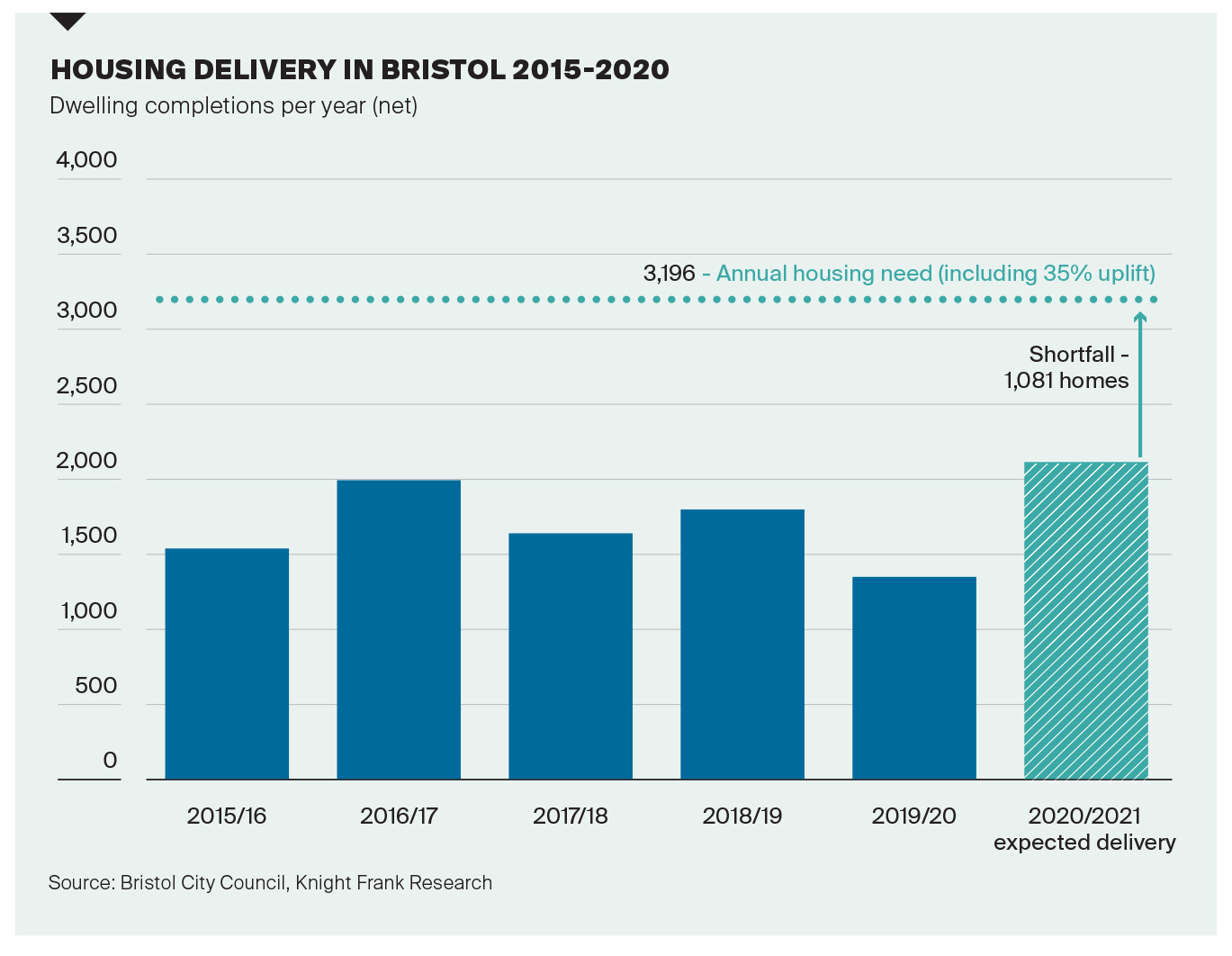How is Bristol blazing a trail for the post-pandemic city?
The city is set to be transformed over the next few years as investment in new homes, transport and amenities increases.
2 minutes to read
Cities are undergoing major structural shifts to respond to changes in the way we live and work.
In a new research report we explore how this has played out in Bristol, with new residential development a key priority due to a constrained pipeline of new homes.
Demand for housing in Bristol is on the rise, with Knight Frank data showing a 33% increase in the number of prospective buyers looking to purchase a home in the city last year, compared to the five-year average. Overall, the number of properties sold was up 7% compared with 2020. Over the past five years, Bristol has seen a 25% rise in house prices.
But analysis of the council’s own five-year supply pipeline from 2020 to 2025 suggests the city will fall short of its annual housing delivery requirement. It will be around over 10% below the annual requirement. The council is proactively drawing up frameworks to meet this shortfall and drawing up collaboration agreements to work with developers.
Across the framework areas, Knight Frank is involved in the delivery of 12,000 new homes, which is on top of Bristol's current supply pipeline.

Economic expansion
One factor behind the rise in new residential development is the city's tech and creative scene, and its popularity with young professionals moving out of London.
Last year, Bristol was the third most popular city for London leavers, attracting over five thousand movers from the capital.
Enquiry levels and viewings for commercial property in the city are on the rise with tech, media, and telecommunication (TMT) firms in particular returning to the market to grow their presence. In total, TMT accounted for 31% of office take-up over the past five years.
The city was also recognised as a leader in innovation in our UK Cities 2022 report. The report found that Bristol ranked seventh out of 39 regional UK cities for innovation, ranking third for innovation infrastructure. To reach this score, the report looked at the quality of Bristol's universities, research institutions, start-up-accelerators, and funding bodies.
By 2030, the number of people employed in professional, scientific or tech-based roles is set to grow by 15%, according to Knight Frank’s analysis of Oxford Economics data.
For more information and analysis on the market in Bristol download our report